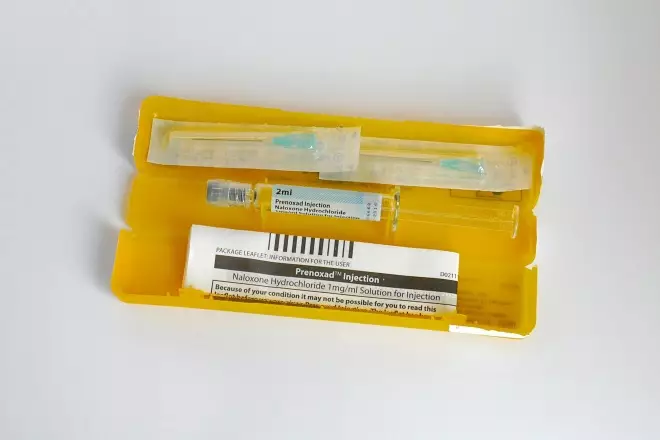
Source: Ethypharm
Under regulations that came into force in October 2015, people working in drug treatment services could supply injectable naloxone to anyone for the purpose of saving a life in an emergency
A take-home naloxone pilot project based in community pharmacies in Somerset has provided almost 50 interventions in its first month.
The scheme involves members of the pharmacy team supplying naloxone injections to people either at risk of having, or who might witness someone having, an opioid-related overdose so that the injectable naloxone can be administered during an emergency.
Naloxone is the emergency antidote for overdoses caused by heroin and other opioids, such as methadone, morphine and fentanyl.
Supply of the drug can be made by any member of the team in eligible pharmacies, once they have completed the mandatory training. In light of the COVID-19 pandemic, for the Somerset pilot, training was shortened to one hour and was made available to pharmacy staff online.
The pilot was set up by Turning Point, an organisation providing healthcare and social care services across England, with the support of Somerset Local Pharmaceutical Committee. Graham Parsons, chief pharmacist at Turning Point, said the Somerset scheme provided a different service to those already existing in other rural areas.
“In Somerset, the focus was on the supply [of naloxone] with only a very brief intervention,” he said.
“In the other areas, the interventions were more comprehensive and longer. This often had an impact on the numbers supplied due to the time constraints of our pharmacy colleagues.
“Part of naloxone working is getting it out there into the hands of the clients — it [does no good] staying in the pharmacy.”
Parsons added that similar schemes in Suffolk and Wiltshire had not provided the same number of interventions as Somerset, which achieved 49 interventions in May 2020, owing to the shorter intervention time.
“Community pharmacy in Somerset has been committed to supporting our Turning Point service partner colleagues to move at pace to establish this additional service during the COVID-19 crisis,” said Michael Lennox, chief executive of Community Pharmacy Somerset.
“We believe that the agility and innovation demonstrated by our joint efforts on this service project has reduced risk to those who may have been more vulnerable during these difficult times,” he added.
Under regulations that came into force in October 2015, people working in drug treatment services could supply injectable naloxone to anyone for the purpose of saving a life in an emergency. This meant that drug services could supply naloxone to an outreach worker, hostel manager, carer, friend or family member, or a drug user at risk in the event of an emergency.
Pharmacy needle exchange programmes, if they are commissioned by local authorities or the NHS, and pharmacies providing drug treatments such as opioid substitution treatments, are among the services that can supply naloxone.


